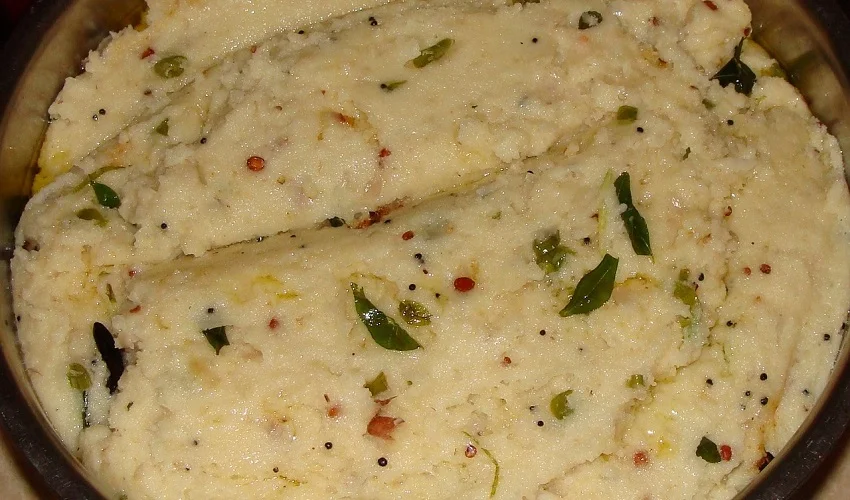What is Makhana?
Makhana, also known as fox nuts or lotus seeds, is a popular snack in India and other Asian countries. It is derived from the seeds of the lotus flower and has been consumed for centuries due to its numerous health benefits. Makhana is low in calories and fat, making it an ideal choice for individuals with diabetes. It is also rich in fiber, which helps regulate blood sugar levels and improve digestion. Additionally, makhana is a good source of protein and essential minerals like magnesium and potassium. These nutrients play a crucial role in maintaining overall health and managing diabetes. Incorporating makhana into a diabetic diet can provide a tasty and nutritious alternative to traditional snacks.
Nutritional Composition of Makhana
Makhana, also known as fox nuts or lotus seeds, is a nutritious snack that has gained popularity for its potential benefits for diabetic health. The nutritional composition of Makhana makes it a suitable food choice for individuals with diabetes. It is low in calories and fat, making it a healthy alternative to high-calorie snacks. Makhana is also rich in protein and fiber, which helps in regulating blood sugar levels and promoting satiety. Additionally, it contains essential minerals like magnesium, potassium, and phosphorus, which are important for maintaining overall health. Including Makhana in a diabetic diet can provide a range of nutrients while keeping blood sugar levels under control.
Benefits of Makhana for Diabetic Health
Makhana, also known as fox nuts, has gained popularity for its potential benefits for diabetic health. These small, white seeds are low in glycemic index, making them a suitable snack option for individuals with diabetes. Makhana is rich in fiber, which helps regulate blood sugar levels and improves digestion. Additionally, it contains essential nutrients such as magnesium, potassium, and phosphorus, which contribute to overall health. The antioxidants present in makhana help reduce oxidative stress and inflammation, which are common complications in diabetes. Incorporating makhana into a diabetic diet can provide a nutritious and satisfying snack while promoting better blood sugar control and overall well-being.
Makhana as a Low Glycemic Index Food
Understanding Glycemic Index
The glycemic index is a measure of how quickly a particular food raises blood sugar levels. It ranks carbohydrates on a scale from 0 to 100 based on how they affect blood sugar levels. Foods with a high glycemic index, such as white bread and sugary drinks, are quickly digested and cause a rapid increase in blood sugar levels. On the other hand, foods with a low glycemic index, such as whole grains and legumes, are digested more slowly and result in a slower and more gradual rise in blood sugar levels. Understanding the glycemic index is important for individuals with diabetes as it can help them make informed choices about the foods they consume and manage their blood sugar levels effectively.
Makhana’s Glycemic Index
Makhana, also known as fox nuts or lotus seeds, is a popular snack in India. One of the key factors to consider when evaluating the benefits of Makhana for diabetic health is its glycemic index. The glycemic index is a measure of how quickly a food raises blood sugar levels. Foods with a high glycemic index can cause a rapid increase in blood sugar, which is not ideal for individuals with diabetes. However, Makhana has a low glycemic index, making it a suitable snack option for diabetics. The slow digestion and absorption of Makhana helps in maintaining stable blood sugar levels and preventing sudden spikes. Additionally, Makhana is rich in fiber and protein, which further aids in blood sugar management. Incorporating Makhana into the diet can be a beneficial choice for individuals looking to maintain diabetic health.
Impact on Blood Sugar Levels
Makhana, also known as fox nuts, has gained popularity in recent years for its potential benefits in managing blood sugar levels. Several studies have suggested that the high fiber content in Makhana can help regulate blood glucose levels, making it a suitable snack option for individuals with diabetes. Additionally, Makhana is low in glycemic index, which means it has a minimal impact on blood sugar levels. The presence of essential nutrients like magnesium and potassium further enhances its ability to support healthy blood sugar control. Incorporating Makhana into a balanced diet can be a beneficial dietary strategy for individuals looking to manage their blood sugar levels effectively.
Rich Source of Dietary Fiber
Importance of Dietary Fiber for Diabetics
Dietary fiber plays a crucial role in managing diabetes and maintaining overall health. For diabetics, consuming foods high in dietary fiber can help regulate blood sugar levels and improve insulin sensitivity. Fiber-rich foods, such as whole grains, fruits, vegetables, and legumes, slow down the absorption of glucose in the bloodstream, preventing spikes in blood sugar. Additionally, dietary fiber promotes a feeling of fullness, which can aid in weight management and prevent overeating. It also supports digestive health by promoting regular bowel movements and preventing constipation. Including a variety of fiber-rich foods in the diet is essential for diabetics to optimize their blood sugar control and promote long-term health.
Fiber Content in Makhana
Makhana, also known as fox nuts or lotus seeds, is a popular snack in many Asian countries. One of the key benefits of consuming Makhana is its high fiber content. Fiber is an essential nutrient that plays a crucial role in maintaining digestive health and managing blood sugar levels. Makhana is a rich source of dietary fiber, which helps in regulating bowel movements and preventing constipation. Additionally, the fiber in Makhana slows down the absorption of glucose in the bloodstream, which can be beneficial for individuals with diabetes. Including Makhana in your diet can be a great way to increase your fiber intake and support your overall health.
Role in Blood Sugar Management
Makhana, also known as fox nuts, have been found to play a significant role in blood sugar management. These small, crunchy seeds are low in glycemic index, meaning they have a minimal impact on blood sugar levels. This makes them an ideal snack option for individuals with diabetes. Makhana is also rich in fiber, which helps slow down the absorption of glucose in the bloodstream, preventing sudden spikes in blood sugar. Additionally, the high magnesium content in Makhana has been shown to improve insulin sensitivity, further aiding in blood sugar control. Incorporating Makhana into a diabetic-friendly diet can be beneficial in maintaining stable blood sugar levels and promoting overall health.
High in Antioxidants
Antioxidants and Diabetes
Antioxidants play a crucial role in managing diabetes. They help protect the body’s cells from damage caused by unstable molecules called free radicals. In people with diabetes, high blood sugar levels can increase the production of free radicals, leading to oxidative stress and inflammation. By consuming foods rich in antioxidants, such as makhana, individuals with diabetes can reduce the risk of complications and improve their overall health. Makhana is an excellent source of antioxidants, including flavonoids and phenolic compounds, which have been shown to have anti-inflammatory and blood sugar-lowering effects. Incorporating makhana into a balanced diet can provide diabetic individuals with the necessary nutrients to support their health and well-being.
Antioxidant Content in Makhana
Makhana, also known as fox nuts or lotus seeds, is a popular snack in many parts of the world. One of the key benefits of consuming Makhana is its high antioxidant content. Antioxidants are compounds that help protect the body against oxidative stress and damage caused by free radicals. Makhana is rich in antioxidants such as flavonoids, phenolic compounds, and vitamin C, which play a crucial role in reducing inflammation and preventing chronic diseases. Regular consumption of Makhana can help boost the body’s natural defense system and promote overall health and well-being.
Protective Effects on Diabetic Health
Makhana, also known as fox nuts, is a highly nutritious food that has been found to have protective effects on diabetic health. Diabetics often struggle to find suitable snacks that won’t spike their blood sugar levels, but makhana is an excellent option. It has a low glycemic index, which means it doesn’t cause a rapid increase in blood glucose levels. Additionally, makhana is rich in fiber, which helps to regulate blood sugar levels and improve insulin sensitivity. The presence of antioxidants in makhana also contributes to its protective effects on diabetic health by reducing inflammation and oxidative stress. Including makhana in a diabetic diet can be a beneficial strategy for managing blood sugar levels and promoting overall health.
Good Source of Plant Protein
Protein Requirements for Diabetics
Diabetes is a chronic condition that requires careful management of diet and lifestyle. One important aspect of managing diabetes is understanding the protein requirements for diabetics. Protein is an essential nutrient that plays a crucial role in various bodily functions, including building and repairing tissues, producing enzymes and hormones, and supporting a healthy immune system. For diabetics, protein can help regulate blood sugar levels, promote satiety, and aid in weight management. However, it is important for diabetics to choose lean sources of protein, such as lean meats, poultry, fish, eggs, and plant-based proteins like tofu and legumes. It is also important to monitor portion sizes and balance protein intake with other macronutrients, such as carbohydrates and fats, to maintain stable blood sugar levels. Consulting with a healthcare professional or registered dietitian can help determine the specific protein requirements for individual diabetics based on their age, sex, activity level, and overall health goals.
Protein Content in Makhana
Makhana, also known as fox nuts or lotus seeds, is a popular snack in many Asian countries. One of the key benefits of consuming Makhana is its high protein content. Protein is an essential nutrient that plays a crucial role in various bodily functions, including muscle repair and growth, hormone production, and immune system support. Makhana is an excellent source of plant-based protein, making it a suitable option for individuals following a vegetarian or vegan diet. Additionally, the protein in Makhana is easily digestible, making it an ideal snack for people with digestive issues. Including Makhana in your diet can help meet your daily protein requirements and promote overall health and well-being.
Role in Blood Sugar Control and Weight Management
Makhana, also known as fox nuts, has gained popularity in recent years for its potential benefits in blood sugar control and weight management. This nutritious snack is low in calories and high in fiber, making it a suitable choice for individuals with diabetes. The high fiber content helps slow down the digestion and absorption of carbohydrates, preventing sudden spikes in blood sugar levels. Additionally, the low glycemic index of makhana ensures a gradual release of glucose into the bloodstream, promoting stable blood sugar levels. Furthermore, makhana is a good source of protein, which can aid in weight management by promoting feelings of fullness and reducing overall calorie intake. Incorporating makhana into a balanced diet can be a beneficial strategy for individuals looking to maintain stable blood sugar levels and manage their weight effectively.
Other Potential Health Benefits
Heart Health
Makhana, also known as fox nuts, is not only a delicious snack but also a great addition to a heart-healthy diet. These nutrient-rich seeds are packed with antioxidants, fiber, and magnesium, which are all beneficial for maintaining a healthy heart. The antioxidants in makhana help reduce inflammation and oxidative stress, which are known to contribute to heart disease. Additionally, the high fiber content of makhana aids in regulating cholesterol levels and promoting cardiovascular health. Furthermore, the magnesium in makhana plays a crucial role in maintaining normal heart rhythm and preventing hypertension. Including makhana in your diet can be a simple and tasty way to support heart health and reduce the risk of cardiovascular diseases.
Digestive Health
Digestive health plays a crucial role in maintaining overall well-being, especially for individuals with diabetes. Makhana, also known as fox nuts, has been found to have several benefits for digestive health. It is rich in dietary fiber, which helps promote regular bowel movements and prevent constipation. Additionally, the high fiber content of Makhana aids in the proper absorption of nutrients and supports the growth of healthy gut bacteria. This can contribute to improved digestion and better nutrient absorption, which is essential for managing diabetes effectively. Including Makhana in the diet can therefore be a beneficial dietary choice for individuals looking to enhance their digestive health while managing their diabetic condition.
Weight Management
Weight management is an important aspect of overall health, especially for individuals with diabetes. Makhana, also known as fox nuts, can be a beneficial addition to a weight management plan. These small, crunchy seeds are low in calories and fat, making them a healthy snack option. Additionally, they are rich in fiber, which helps promote feelings of fullness and can aid in weight loss. Makhana is also a good source of protein, which is important for maintaining muscle mass during weight loss. Including Makhana in a balanced diet and incorporating regular exercise can contribute to successful weight management for individuals with diabetes.
Summary of Makhana’s Benefits for Diabetic Health
Makhana, also known as fox nuts or lotus seeds, has been gaining popularity for its potential benefits for diabetic health. This article aims to provide a summary of the various advantages that Makhana offers to individuals with diabetes. Makhana is a low glycemic index food, meaning it does not cause a rapid increase in blood sugar levels. It is also rich in fiber, which helps regulate blood sugar levels and improve insulin sensitivity. Additionally, Makhana is a good source of magnesium, a mineral that plays a crucial role in glucose metabolism. Furthermore, Makhana contains antioxidants that may help reduce oxidative stress and inflammation, both of which are common complications in diabetes. Overall, incorporating Makhana into a diabetic diet may have positive effects on blood sugar control and overall health.
Incorporating Makhana into a Diabetic Diet
Incorporating Makhana into a Diabetic Diet
Makhana, also known as fox nuts or lotus seeds, is a nutritious and delicious snack that can be easily incorporated into a diabetic diet. These small, crunchy seeds are low in glycemic index, meaning they have a minimal impact on blood sugar levels. This makes them an ideal snack option for individuals with diabetes who need to manage their blood sugar levels. Makhana is also rich in fiber, which helps regulate blood sugar levels and promotes a feeling of fullness, preventing overeating. Additionally, makhana is a good source of magnesium, which plays a crucial role in insulin secretion and glucose metabolism. Including makhana in a diabetic diet can provide essential nutrients while helping to control blood sugar levels and manage weight. Whether enjoyed plain or flavored, makhana is a versatile and healthy snack choice for individuals with diabetes.
Future Research and Recommendations
Future research on the benefits of makhana for diabetic health is crucial for expanding our understanding of its potential. As of now, there is limited scientific evidence available on the specific effects of makhana on diabetes management. Further studies should focus on investigating the mechanisms through which makhana may help regulate blood sugar levels and improve insulin sensitivity. Additionally, research should explore the optimal dosage and duration of makhana consumption to maximize its benefits for individuals with diabetes. Moreover, conducting clinical trials comparing makhana to traditional diabetic medications can provide valuable insights into its efficacy and safety. Overall, future research in this area has the potential to contribute to the development of evidence-based recommendations regarding the incorporation of makhana into the dietary management of diabetes.




